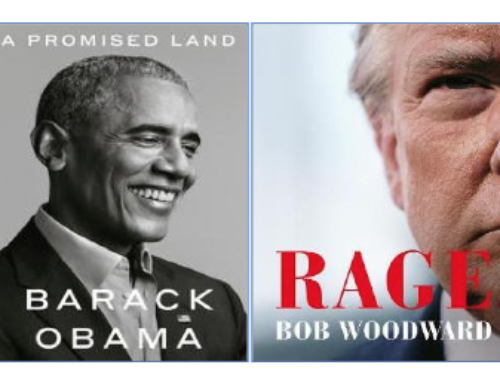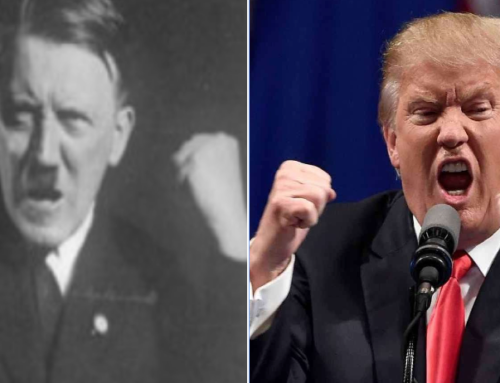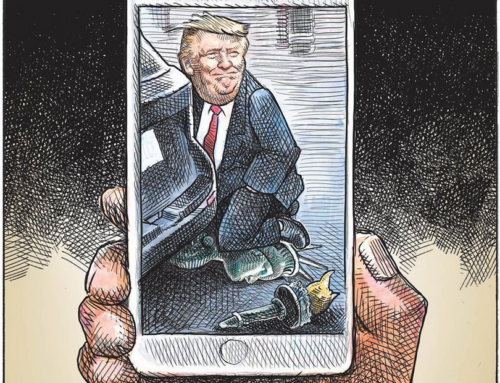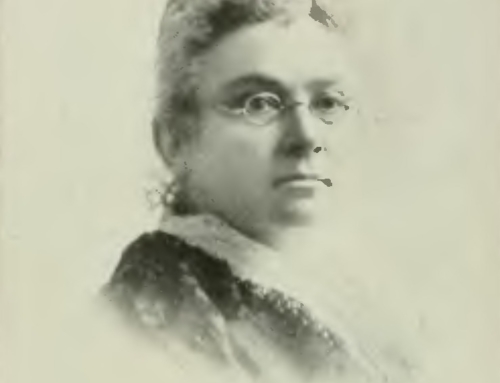A truth Alexander Hamilton feared greatly
Two things you probably do know – and two you might not
- Either Donald Trump lied for more than four years or Donald Trump told the truth for four years and is now lying.
- Donald Trump doesn’t give a damn if he lies or what you think.
- Adolescence or “arrested adulthood” can continue through life.
- Alexander Hamilton’s ghost might still save the Republic.
(5 minute read)
Donald Trump lying is not news. Donald Trump caught lying is not news. Donald Trump not apologizing for lying is not news – but one sentence revealed a much more frightening trait. A lack of behavioral development that should concern every voter, even Trump supporters.
The real Trump was revealed at a pseudo propaganda event dressed up as a press conference last week when Trump declared: “President Obama was born in the United States. Period.”
Nine words, one truth. Nine words that are supposed to reverse more than four years of talking out of the other side of his mouth, pushing a trumped up conspiracy theory that he now concedes as false. Or doesn’t? Either way, incredulously, 21% of Americans still believe Trump on this question and he is again confirming what most of the world knows: He is a pathological lying narcissist, misogynistic, racist, xenophobe.
So what’s new?
Trump reveals his true age
Ironically, Trump’s questioning of Obama’s birth certificate and last week’s flip flop has confirmed “The Donald’s” true age. He is an adolescent (18-25 years old). In more clinical terms, he’s a pre-adult or in “arrested adulthood.” In the book, Debating Emerging Adulthood: Stage or Process? the authors debate the correlation of age and adolescence and whether it is a stage in life or a condition that can occur throughout life. Two of the authors, Hendry and Kloep “assert that stage theories have never been able to explain individual transitions across the life course; in their view, stage theories, including the theory of emerging adulthood ought to be abolished altogether, and explanations found for the processes and mechanisms that govern human change at any age.”
[1]
We non-psychiatrists can confirm that we see adolescent behavior in so-called grown up people, everyday, from psychopathic bosses and road rage to infuriated shoppers and … Donald Trump on the evening news.
Trump’s puerile, shallow, simpleminded behavior is indicative of arrested adulthood. Despite is birth certificate showing he was born June 14, 1946, almost every psychiatrist, psychologist, biologist, sociologist, marriage counselor, parental mediator – and common sense – would confirm that he is stuck in adolescence, suffering from arrested adulthood.
Adolescence (noun): usually, but not always, associated with the teenage years, its physical, psychological or cultural expressions may begin earlier and end later [sometimes never end]. Cognitive advances [during adolescence] encompass both increases in knowledge and in the ability to think abstractly and to reason more effectively,[2] but emotional development can be delayed or truncated, thereby, continuing semi-hormonal adolescence across the life course.
Hendry and Kloep argue that we need to look at pre-adulthood as a phenomenon that can occur at any age, which means Trump’s seemingly inexplicable behavior at age 70 is not inexplicable. The reason his adolescence stands out like a teenager’s dyed-blond, duck-tailed haircut is because he is applying for a job, on reality TV, for a very high level position, one he has never held before and has no experience at. It’s one in which behavior matters, and behavior is a reflection of maturity and emotional intelligence, and in this position, nothing matters more than emotional intelligence. Nothing.
Kay S. Hymowitz, in her book, Man Up: How the Rise of Women Has Turned Men into Boys, says, “Unlike women, they [men] have no biological clock telling them it’s time to grow up.” She further states in a Wall Street Journal article, Where Have The Good Men Gone? that “American men have been struggling with finding an acceptable adult identity since at least the mid-19th century” and “It [adolescence] doesn’t bring out the best in men.” Could it be that Trump is personifying the identity so many men are struggling to find? Although Hymowitz is referring primarily to young adolescent males (18-25), her premise applies to Hendry and Kloeps’ hypothesis of arrested adulthood at all ages. Again, it’s quotidian behavior we see in adults all the time.
Adolescents don’t think like adults. Every parent knows this and research confirms it. In a study by the Journal of Adolescence titled, “The audience effect in adolescence depends on who’s looking over your shoulder,” researchers state: “Studies of the audience effect in adults have found that performance usually improves when participants are observed in simple and well-learned tasks, and worsens in complex or learning tasks.”[3] In other words, adolescence minds don’t do well in complex or learning tasks (like governing, policy-making, foreign affairs). There’s good reason we don’t trust teenagers in adult situations: driving, drinking, sex, safety, finances, emergencies and important decision-making. They’re not good at it. They’re too driven by adolescent needs and urges. They’re underdeveloped intellect is often overwhelmed by emotional needs. They just don’t have the requisite experience.
Regardless of the time and place on Donald Trump’s birth certificate, at this time and place his adolescence is there for all to see. And beware.
Can Alexander Hamilton’s ghost save the Republic?
On Nov. 8, 2016, the 240-year-old American experiment in democracy will test whether or not the American people will hire an adolescent to do an adult job?
Alexander Hamilton and the founding fathers understood the risk in forming a republic in which the power resided too much with the people, as captured in words Hamilton wrote to Thomas Jefferson in reference to “we the people. He said, “… Beware the beast.” Consequently, the founders created the Electoral College, thus, neutering any semblance of a true republic in order to protect the people from themselves. They understood the risk of tyranny and the Electoral College was designed to prevent the manipulation of the citizenry for three basic reasons:
- They feared the direct election of a President by “the beast” (moron majority).
- They feared an tyrannical authoritarian who could manipulate public opinion and come to power.
- They knew minority interests needed to be protected from the majority, the masses.
Hamilton wrote in Federalist Papers, No. 68:
It was equally desirable, that the immediate election should be made by men most capable of analyzing the qualities adapted to the station, and acting under circumstances favorable to deliberation, and to a judicious combination of all the reasons and inducements which were proper to govern their choice. A small number of persons, selected by their fellow-citizens from the general mass, will be most likely to possess the information and discernment requisite to such complicated investigations. It was also peculiarly desirable to afford as little opportunity as possible to tumult and disorder. This evil was not least to be dreaded in the election of a magistrate, who was to have so important an agency in the administration of the government as the President of the United States. But the precautions which have been so happily concerted in the system under consideration, promise an effectual security against this mischief.[4]
The founding fathers were dealing with a population of about 3.5 million and they could never have imagined a “beast” one-hundred times larger (324 million).
On November 8, 2016, 120-130 million Americans are expected to vote (219 million are eligible to vote), and the Electoral College will be tested as never before. The historic question is: Will the ghost of Alexander Hamilton and the legacy of the founding fathers prevent the Office of the President of the United States from being turned over to an underdeveloped, narcissistic, authoritarian who craves attention as he struggles through arrested adulthood?
Footnotes:
- Amazon book review: https://www.amazon.ca/Debating-Emerging-Adulthood-Stage-Process/dp/0199757178/ref=sr_1_1?s=books&ie=UTF8&qid=1474559959&sr=1-1&keywords=Debating+Emerging+Adulthood
- Wikipedia, Adolescence: https://en.wikipedia.org/wiki/Adolescence
- Journal of Adolescence, Volume 43, Issue null, Pages 5-14 https://www.ncbi.nlm.nih.gov/pmc/articles/PMC4533226/#bib4
- Federalist Paper No. 68, History Central: http://www.historycentral.com/elections/Federalist.html







Leave A Comment